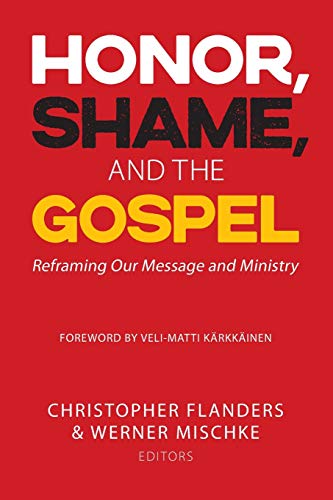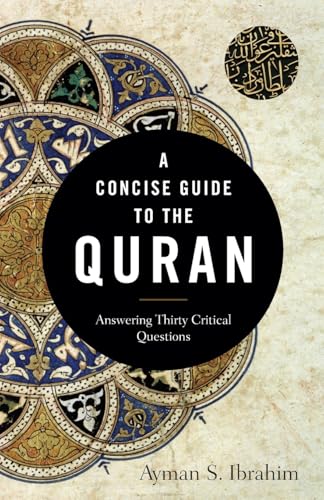Honor, Shame, and the Gospel: Reframing Our Message and Ministry
Written by Christopher Flanders and Werner Mischke, eds Reviewed By Alan B. HowellAn important and relatively recent trend in missiology and theology has come from a growing appreciation of how “honor-shame” dynamics have shaped the biblical texts, human history, and even the world around us today. This development is less of a discovery and more of a recognition of the need to join an ongoing conversation in anthropology, behavioral sciences, and philosophy. Honor-shame conferences in 2017 and 2018 created helpful space for dialogue about the intersection of these cultural categories and the gospel in a variety of contexts. As this conversation widens and many people grow aware of honor and shame, Flanders and Mischke have organized an important resource. This book provides an accessible entry point for newcomers interested in joining the conversation. Its substantial contributions enhance the theory and practice of those already working in this field.
Honor, Shame and the Gospel begins with a helpful introductory chapter containing useful definitions, a short history of honor-shame relative to Christian ministry, and a thoughtfully crafted list of “Top Ten Statements.” The curated, concise list thoroughly sets the table, laying ground rules, and naming the real stakes involved for this conversation. The collection of essays is then organized into two parts, first considering “Honor-Shame in General Contexts” and then concluding with “Honor-Shame in Various Mission Contexts.”
The first section contains helpful chapters concerning Christology, exploring how honor-shame helps us understand Jesus in his own social context (Randolph Richards), the mission of God (Steven Hawthorne), and the atonement (Mako Nagasawa). Others examine honor-shame in relation to individualism and collectivism (Jackson Wu) as well as significant special issues like sexual-abuse victimhood and shame in church history (Steve Tracy). My favorite chapter in this section is Jayson Georges’s “Honor and Shame in Historical Theology.” Georges looks at how Christians in the past, like John Chrysostom, Jonathan Edwards, Athanasius, Bonhoeffer, and C. S. Lewis “explained biblical truth in honor-shame terms,” often by letting us hear them in their own words (p. 21). His “brief tour through historical theology shows that honor-shame is clearly not new” (p. 34) and is useful for considering hermeneutics, ethics, and eschatology. Although honor-shame are sometimes perceived merely as a cross-cultural mission conversation, Georges shows how honor and shame have shaped the church’s theological perspective.
Tom Steffen includes many helpful insights in his ambitious chapter, “A Clothesline Theology for the World: How a Value-Driven Grand Narrative of Scripture Can Frame the Gospel.” I agree that framing a grand narrative of the redemptive work through Christ in honor-shame terms is certainly a worthy goal; however, my main critique of Steffen’s chapter is the surprising neglect of God’s work in human history through Israel (p. 48). This section of the book (“Honor-Shame in General Contexts”) would have been greatly enriched by sustained consideration of God’s faithful partnership with the chosen people Israel, a major element in the story that can help us see honor-shame dynamics at work in powerful gospel ways.
The second part of the book turns our attention to honor-shame in particular mission contexts. The authors explore challenging settings: people in poverty dealing with shame due to a lack of education (Lynn Thigpen), personal experiences sharing life in the pluralistic setting of San Francisco (Steve Hong), potential racial and ethnic reconciliation in a variety of contexts (Katie Rawson), and how 1 and 2 Samuel can model a way of naming the complexities of honor-shame in the contentious history following the Yugoslav succession (Nolan Sharp). Also, two chapters on how honor-shame can aid our engagement with Islam, from working with women from Muslim backgrounds (Audrey Frank) to reframing conceptions of humility and leadership (Arley Loewen). Christian Dumitrescu’s chapter “Discipleship in Asian Honor Cultures” is a great resource for considering how to contextualize the discipleship journey in light of honor-shame realities (p. 162).
Of all the book’s chapters, Rich James’s “An Honor-Shame Gospel for Syrians Displaced by War: Jesus Christ as Good Shepherd and Honorable Patron” gave me the most hope and encouragement. His contribution should be required reading for anyone interested in the Christian response to the refugee crisis, whether at home or serving abroad. This chapter beautifully explains how seeing Jesus as the Good Shepherd is a way of speaking of Christ as a patron. It embodies the spirit of this book, calling us to consider ways of living the gospel in ways that communicate clearly and boldly in an honor-shame world.
Overall, this book is an impressive, ambitious resource that reframes how we think about the church’s message and ministry. It pulls in different ingredients and issues, inspiring readers to humbly go into the world, not with an antagonistic posture, but with an approach that honors others as disciples of Jesus Christ.
Alan B. Howell
Alan B. Howell
Harding University
Searcy, Arkansas, USA
Other Articles in this Issue
Christian universalism (the view that all people are eventually saved) is largely predicated upon a negative reaction to the traditional doctrine of hell...
Appeasement of a Monster God? A Historical and Biblical Analysis of Penal Substitutionary Atonement
by Geoffrey ButlerLong considered a key tenet of evangelical theology, the doctrine of penal substitutionary atonement has come under particularly intense scrutiny in recent years...
Trinity, Creation, and Re-creation: A Comparison of Karl Barth and Herman Bavinck’s Trinitarian Doctrines of Creation
by Jarred JungKarl Barth’s doctrine of creation, while rooted in his doctrine of the Trinity, errs in the way that creation is conflated into re-creation, resulting in a diminished doctrine of creation at the expense of his christological Trinitarianism...
Theologoumena Pantodapa may be John Owen’s most comprehensive theological work and his greatest contribution to the Reformed tradition...
The Parting of the Way: A Survey of the Relationship between Jews and Christians in the First and Second Centuries CE
by Doosuk KimPeople today clearly view Judaism and Christianity as different religions...







